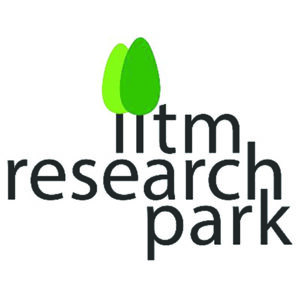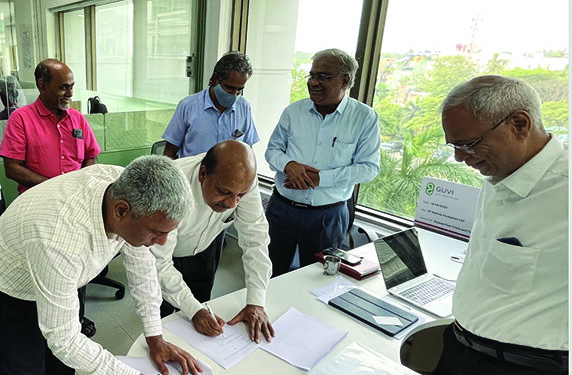CHENNAI, JAN 17

The IIT Madras Research Park’s Center for Excellence in Energy and Telecommunication (CEET), has joined hands with auto electrical leader, Lucas TVS for innovation in Li-ion battery. The MoU was signed recently.
Our Center for Excellence in Energy and Telecommunication (CEET), have joined hands with auto electricals leader, @LucasTVSLtd to further innovation in Li-ion battery energy storage for stationary energy storage, automotive applications & capability building of young engineers! pic.twitter.com/BhWJcvi3yz
— IIT Madras Research Park (@iitm_respark) January 11, 2023
The partnership will primarily focus on developing innovation in Li-ion battery energy storage for both stationary energy storage and automotive application (2W, 3W, passenger car/LCV) and deep capability building of young engineers through work on the design and development of Li-ion battery pack. Lucas TVS will be the first to introduce semisolid lithium-ion batteries produced in India with its tie-up with 24M and specifically designed for the Indian market.
- The partnership will primarily focus on developing innovation in Li-ion battery energy storage for both stationary energy storage and automotive application (2W, 3W, passenger car/LCV)
- Lucas TVS will be the first to introduce semisolid lithium-ion batteries produced in India and specifically designed for the Indian market
Centre for Battery Engineering and Electric Vehicles (CBEEV) is a pioneer R&D lab in India established in 2016 for EV system and subsystem design and development within IIT Madras Research Park. It has been developing a range of technology and products such as stationary energy storage systems ranging from micro-to-large scale utility power and grid storage systems; and battery packs for an array of electric vehicle applications.
The Indian Electric Vehicle sector has been growing rapidly in recent years following the Government of India’s favourable policies and the increasing call to reduce pollution.
Lithium-ion batteries are widely used in EVs. China, which is a major manufacturer of lithium-ion batteries, dominates the EV battery manufacturing sector. Currently, Indian EV manufacturing firms import lithium-ion batteries mostly from China.
Although lithium-ion batteries are widely used, there are several limitations such as limited availability. Further, the diverse requirements of the Indian market cannot be fully met by lithium-ion batteries alone.
Last year, Lucas TVS and US-based 24M Technologies, Inc, engaged in the development of generation lithium-ion battery technologies, signed a license and services agreement to build touted as one of the first Giga factories in India using 24M’s semisolid platform technology. Though the financial details of the proposed investment in the factory were not disclosed, the previous AIADMK government had, put the value of the investment at ₹2,500 crore.
The factory is at Thervoy Kandigai, Gummidipoondi near Chennai. Lucas may build plants throughout India to support the growing energy storage, electric mobility, and lead acid battery replacement markets. The company plans mass production of cost-effective, safer, and high energy-density lithium-ion cells.
The Chennai plant is expected to begin commercial production in the second half of 2023. Lucas TVS plans to grow the capacity of the plant to a globally competitive scale of 10 GWh in two stages in view of the emerging opportunities in the renewable and electric mobility space in the country.
For the record, TK Balaji, Chairman and Managing Director, Lucas TVS, said for choosing 24M as partner that Lucas TVS believed in investing in next-generation technologies. 24M has semisolid platform technology to provide affordable e-mobility, lead acid battery replacement, and storage solutions with improved quality and best-in-class safety.
There are large capacity units being planned globally in Japan, ASEAN, Europe, East Asia and the US based on the semisolid technology.










